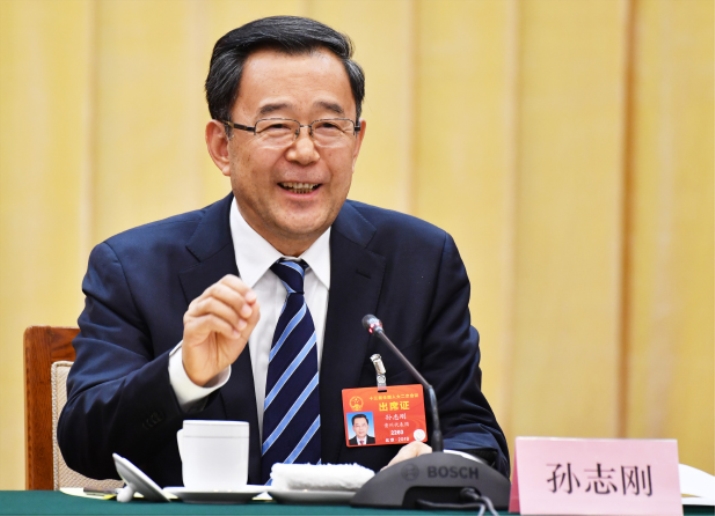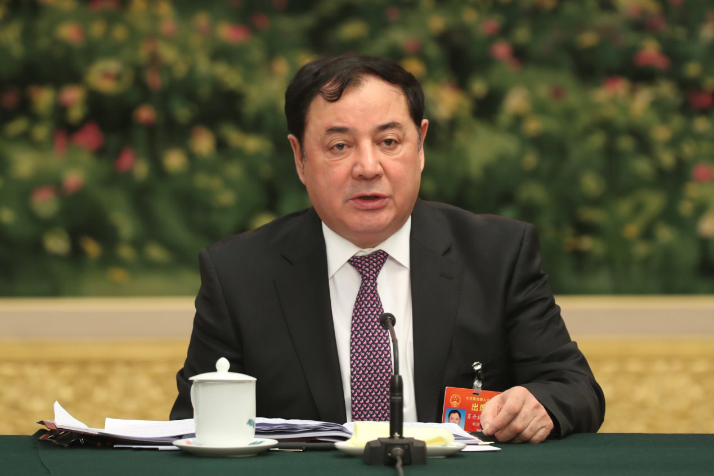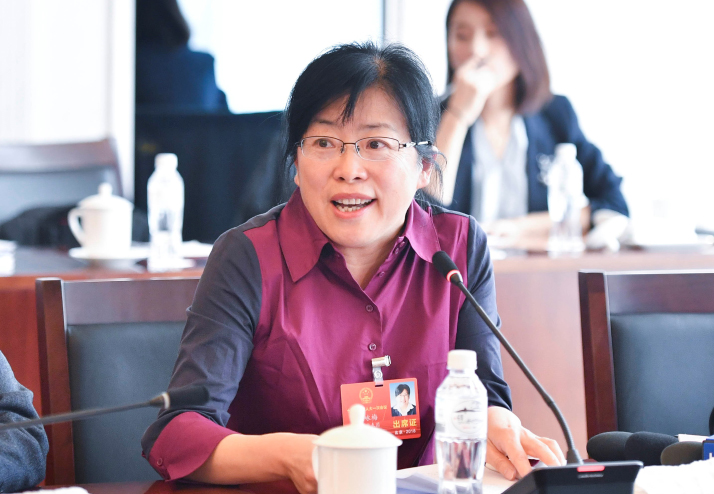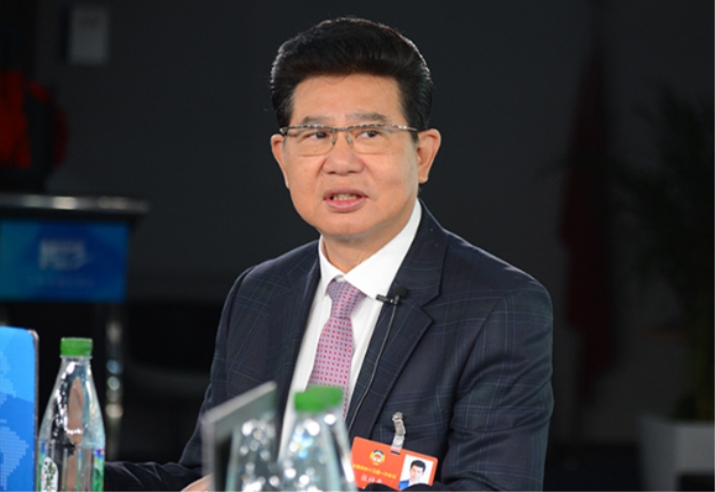|
||||||||||
| Home Nation World Business Opinion Lifestyle ChinAfrica Multimedia Columnists Documents Special Reports |
|
||||||||||
| Home Nation World Business Opinion Lifestyle ChinAfrica Multimedia Columnists Documents Special Reports |
| ChinAfrica |
| Targeting Poverty Alleviation |
| At the two sessions, some NPC deputies and CPPCC National Committee members spoke to ChinAfrica about China's poverty alleviation campaigns in 2019 |
| | VOL.11 April ·2019-04-02 |
According to Liu Yongfu, Director of the State Council Leading Group Office of Poverty Alleviation and Development, China has reduced the impoverished population from 98.99 million in 2012 to 16.6 million in 2018. This year, more than 10 million people will be lifted out of poverty. At the two sessions, some NPC deputies and CPPCC National Committee members spoke to ChinAfrica about China's poverty alleviation campaigns in 2019. Edited versions of their thoughts follow:

(WEI YAO)
Green Development
Sun Zhigang
NPC deputy
In 2018, the number of people living in poverty in Guizhou Province decreased by 1.48 million. Fourteen counties were officially lifted out of poverty and another 18 are now under assessment. Our plan for Guizhou in 2019 is a GDP increase of about 9 percent and to lift another 1.1 million rural residents out of poverty. To this end, we will further promote industrialized development in rural areas, and create a batch of large ecological agriculture zones and modern agricultural demonstration zones. We will also continue our efforts to ensure access to compulsory education, basic medical care and safe housing. In regards to the high-quality economic development, our focus will be on developing a high-end, green and intensified economy. This can be done by upgrading Guizhou's manufacturing sector to the medium and high end of the industrial chain in China.
By following green development, preventing pollution and advocating a green lifestyle, we will improve ecological conservation. Our goal is to increase the proportion of days with good air to more than 95 percent in counties and urban areas and improve the forest coverage to 58.5 percent. We will embark on the path of green development which is different from other provinces in China. To win the final battle against poverty and achieve moderate prosperity in all respects, we need to stay focused on our targets and create good living conditions for the 40 million people of different ethnic groups living in Guizhou.

(ZHU WEIHUI)
Targeted Measures Needed
Shewket Imin
NPC deputy
In Xinjiang Uygur Autonomous Region where I'm from, big progress was made in 2018 regarding poverty alleviation. A total of 587,000 people in 513 villages were lifted out of poverty, and the incidences of poverty in the region fell to 6.51 percent, down 5.06 percentage points from 2017.
However, the work of poverty alleviation in Xinjiang remains tough, especially in the southern part of the region, owing to its harsh environment and limited natural resources, along with its long distance from core cities and low level of urbanization. As of the end of 2018, the population living in poverty in south Xinjiang accounted for 99.84 percent of all the poverty-stricken people in the autonomous region.
We need to strengthen our policy for targeted poverty alleviation and make further progress with measures such as creating nonagricultural employment opportunities for the surplus rural workforce and relocating people from inhospitable areas, to make sure that our assistance reaches every village, household and individual.
Great efforts should be made to reduce poverty through the development of education and healthcare, and through infrastructure construction, to make sure that people live in better conditions and don't fall into poverty because of diseases.
Poverty alleviation requires the joint efforts of the whole society. We need to encourage more people to join us in this fight against poverty and our focus should be further shifted to key areas and key tasks. Measures are also needed to improve the knowledge and aspirations of people in poverty, so that they can become self-sufficient in the long term without the need of external assistance.

(XINHUA)
Education Is the Key
Zhang Yongmei
NPC deputy
Education is fundamental for poverty alleviation work in impoverished areas of China. To get out of poverty, you must first to be well educated. To do this, more targeted measures should be taken. These measures should include not only building schools in impoverished areas and dispatching good teachers there, but also helping those children to build up their confidence and ambition so that they can receive help in a dignified way. Many families are poor because of insufficient education, knowledge and skills. They also do not have training resources. In some poverty-
stricken remote areas, owing to insufficient financial resources of local governments, they do not have enough input in education, leading to a drain of talented teachers there. In addition, efforts should also be made to improve the teaching environment and facilities.
In improving education in impoverished areas, joint efforts should be made to share education resources nationwide on an equal basis. The Internet should be fully used for this purpose to promote "Internet Plus Education" programs, so as to share high-quality education resources in prominent schools with those in impoverished areas through information technology. Also, programs should be launched to enable teachers in high-quality schools to work with their peers in impoverished areas so as to improve the latter's teaching levels.
I want to stress that in the process of helping students in impoverished areas, it is necessary to show adequate respect and care. A teacher from Zhenhai Middle School in Ningbo City, east China's Zhejiang Province, came to help in a middle school in Pu'an County in Guizhou last year. I remembered her first two classes focused on appreciating and praising the students' hometowns so that they can realize that their hometowns are beautiful and important, even though they are poor. With this approach to education, these students will work harder to lift their hometowns out of poverty when they become adults.

(XINHUA)
Private Enterprises Play a Role
Zhang Guiping
CPPCC member
China has set the goal of eliminating absolute poverty by 2020 and has developed targeted measures to alleviate poverty in different regions. In this regard, I think the large number of private enterprises and entrepreneurs can play bigger roles in the process.
After the "Enterprises Helping Villages" program was put forward in October 2015, more than 46,500 private enterprises have been participating in the program, helping 51,200 villages nationwide. With their investment projects and donations, they have made their due contribution to China's poverty alleviation campaign.
I think we can make improvements in the following aspects so that private enterprises can do better in assisting villages out of poverty.
First, efforts should be made to improve the management of donation of private enterprises by establishing a mechanism that can coordinate the efforts of private enterprises and charity organizations. Competent government departments can guide and direct private enterprises in the process through formulating policies and unblocking communication channels between private enterprises and charity organizations. Donations are an important method to alleviate poverty.
Second, preferential policies should also be designed for private enterprises that actively participate in poverty alleviation campaigns. The preferential policies include tax reductions and industrial support. This way, more targeted measures can be designed for different villages.
I also suggest we establish a special fund for private enterprises to implement targeted poverty-alleviation measures, which could be headed by the national poverty alleviation authority. The fund can be used to establish more polytechnic schools, train impoverished people and improve their ability to rise above poverty independently. The fund can also be used to increase the income of teachers in poverty-stricken areas so as to improve children's education.
| About Us | Contact Us | Advertise with Us | Subscribe |
| Copyright Beijing Review All rights reserved 京ICP备08005356号-5 京公网安备110102005860号 |